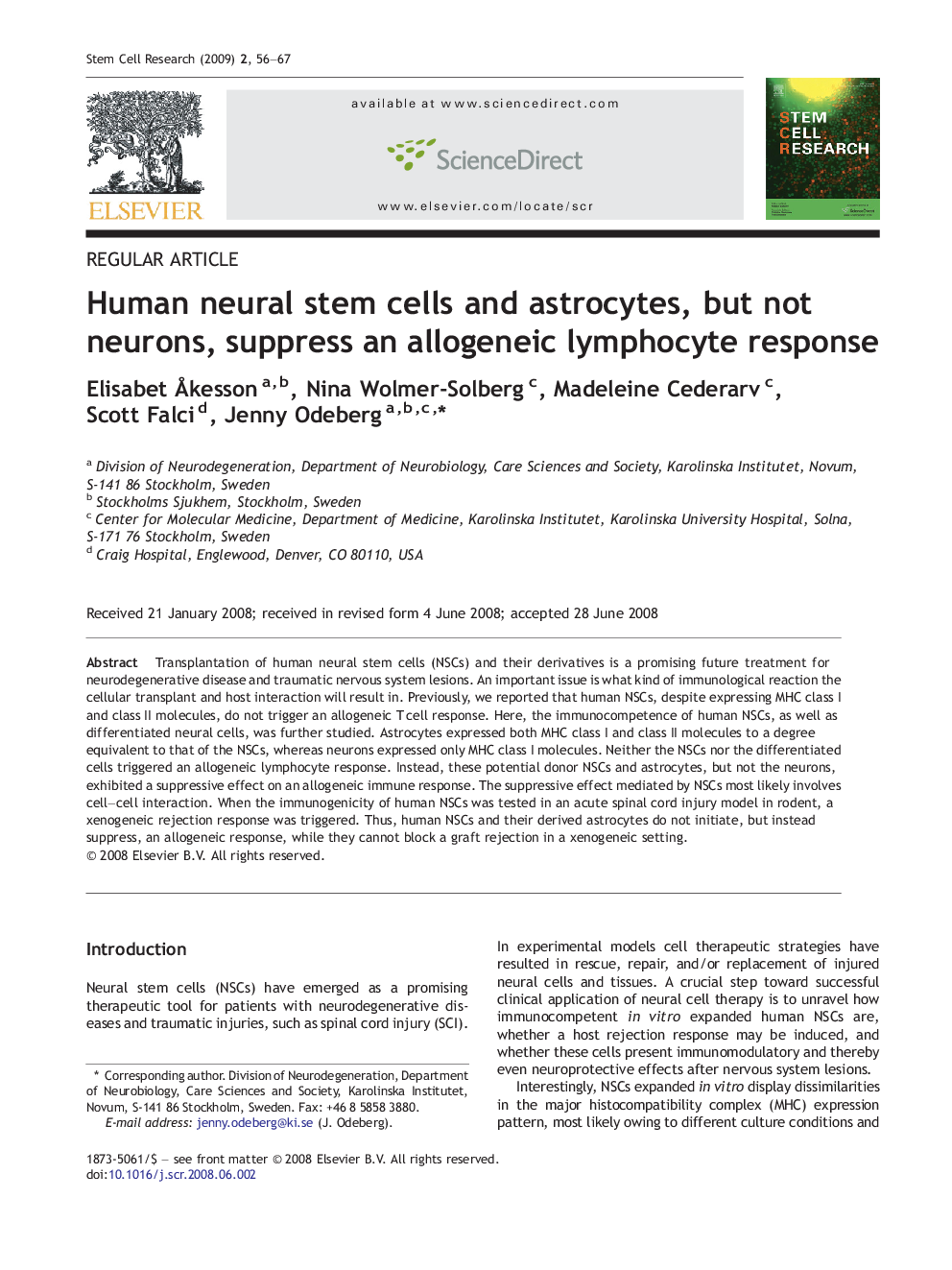| کد مقاله | کد نشریه | سال انتشار | مقاله انگلیسی | نسخه تمام متن |
|---|---|---|---|---|
| 2094384 | 1082011 | 2009 | 12 صفحه PDF | دانلود رایگان |

Transplantation of human neural stem cells (NSCs) and their derivatives is a promising future treatment for neurodegenerative disease and traumatic nervous system lesions. An important issue is what kind of immunological reaction the cellular transplant and host interaction will result in. Previously, we reported that human NSCs, despite expressing MHC class I and class II molecules, do not trigger an allogeneic T cell response. Here, the immunocompetence of human NSCs, as well as differentiated neural cells, was further studied. Astrocytes expressed both MHC class I and class II molecules to a degree equivalent to that of the NSCs, whereas neurons expressed only MHC class I molecules. Neither the NSCs nor the differentiated cells triggered an allogeneic lymphocyte response. Instead, these potential donor NSCs and astrocytes, but not the neurons, exhibited a suppressive effect on an allogeneic immune response. The suppressive effect mediated by NSCs most likely involves cell–cell interaction. When the immunogenicity of human NSCs was tested in an acute spinal cord injury model in rodent, a xenogeneic rejection response was triggered. Thus, human NSCs and their derived astrocytes do not initiate, but instead suppress, an allogeneic response, while they cannot block a graft rejection in a xenogeneic setting.
Journal: Stem Cell Research - Volume 2, Issue 1, January 2009, Pages 56–67